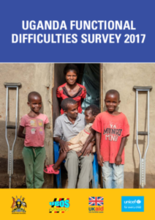Uganda has a rich policy and legislative framework for the inclusion of persons with disabilities. Over the years, this has been adapted to respond to development trends. During the colonial and early post-colonial eras, services for persons with disabilities were provided by institutions. Today, Uganda’s disability policy and legislative framework emphasizes a rights-based approach to disability and takes into account ratified conventions, regional treaties, laws, policies, regulations, guidelines and executive directives (presidential manifestos), within the framework of the Constitution of the Republic of Uganda (1995) and the National Policy on Disability (2006).
The sections in this report provide an analysis of Uganda’s disability policy and legislative framework and how it is implemented, and emphasizes the need for sound research for development, including statistics. Both the National Policy on Disability 2006 and the Disability Act 2006 emphasize the need for research and documentation and the dissemination of best practices and experiences for the replication and scaling up of interventions by all actors, at all levels. Various studies – including the UNICEF/MGLSD Situation Analysis on Children with Disabilities Living in Uganda 2014; the Mapping Study on Community Based Rehabilitation programmes in Uganda 2015; the Disability Scoping Study 2009; and Disability in Uganda: report of a UNDESA scoping mission 20161 – also stress the need for continuing research to inform and improve practice.

